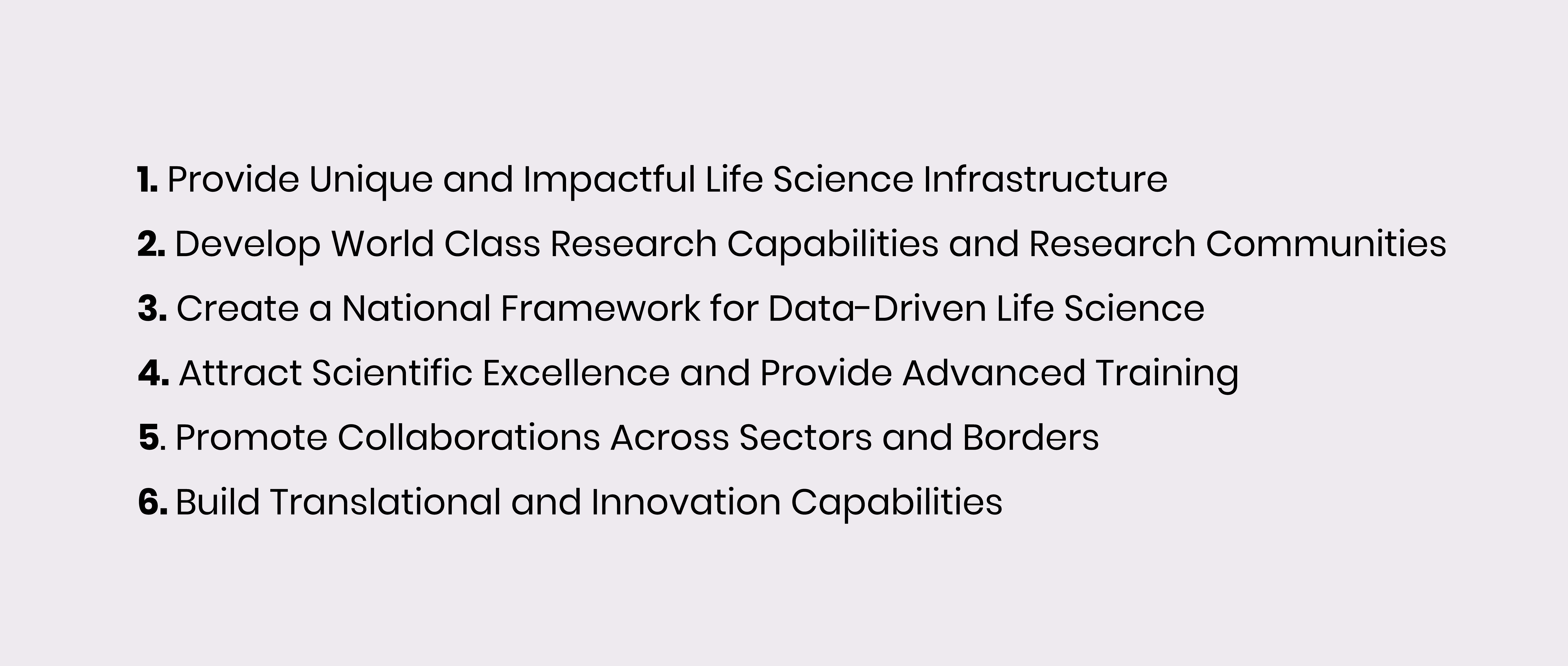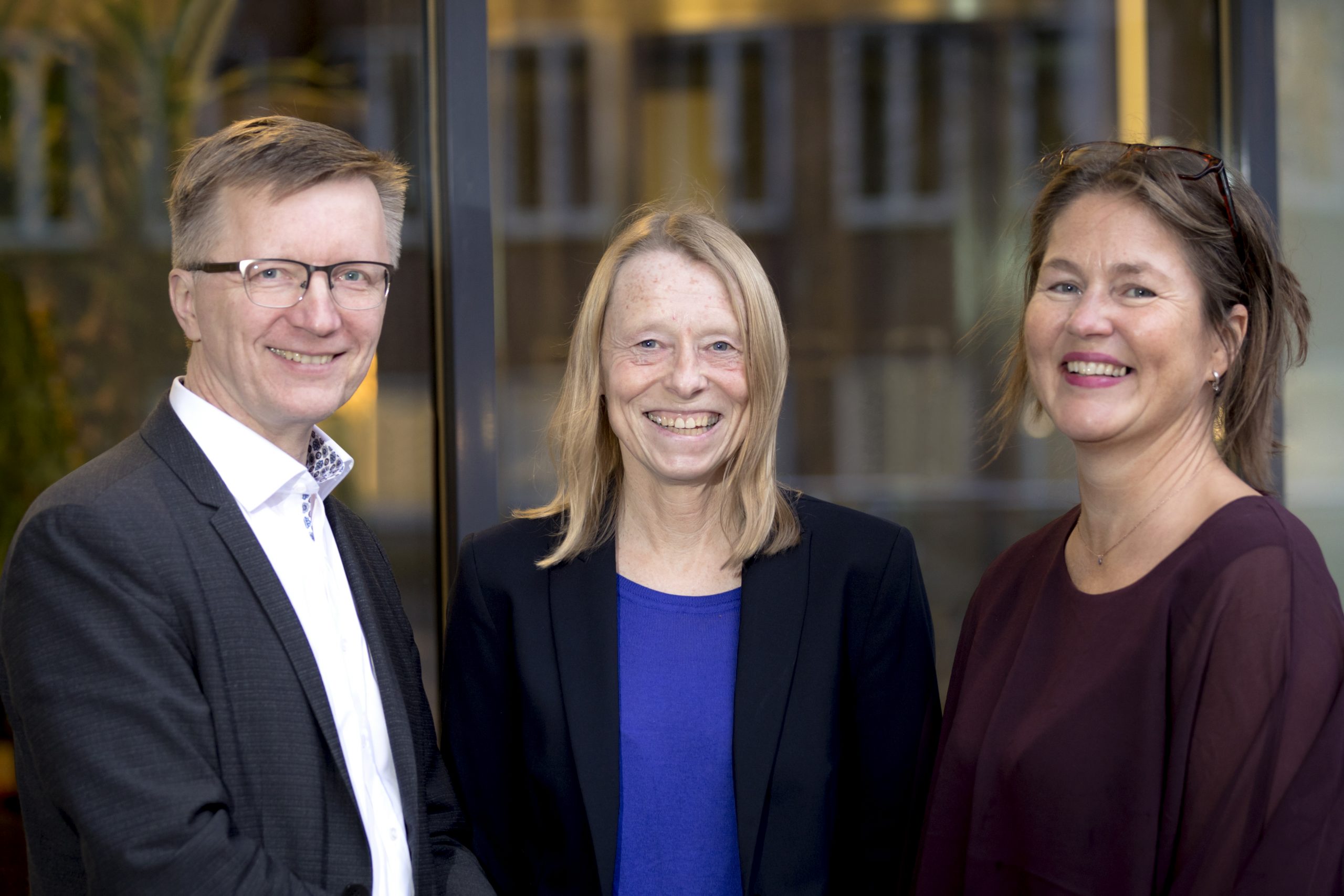SciLifeLab releases 10-year strategy: Strong focus on technology- and data-driven life science
Ten years has passed since SciLifeLab was first launched and the importance of life science to all aspects of human life and society is ever so evident – not least from the ongoing pandemic crisis. SciLifeLab’s new Roadmap for the decade ahead pinpoints how our research infrastructure can be advanced and leveraged in creating multidisciplinary, technology- and data-driven research efforts that would otherwise not be possible in Sweden.
The SciLifeLab Roadmap 2020-2030 is now publicly available; a document that has been developed together with our research community, host universities and external life science stakeholders over the course of one year. Moving forward, it will serve as a guidepost for SciLifeLab as it features six defined strategic objectives:

Considering SciLifeLab’s activities up to this point, there are a number of topics in the novel Roadmap that stand out. Among these are the three planned data-driven national research programs on cell biology, individualized health, and biodiversity and evolution – along with the ambition to create a national framework for life science data.
“A national framework for life science data is needed to maximize the fantastic opportunity we now have to convert the massive amounts of data produced at SciLifeLab into exciting new discoveries”
”Most people relate the name SciLifeLab to technologies and services, and rightfully so for a national infrastructure”, says SciLifeLab Director Olli Kallioniemi. “We will continue our work as a technology-driven organization, but we will now also focus on data-driven life science. We also will seek to further emphasize areas such as biodiversity in addition to the already strong topics of biomedicine and health.”
The Roadmap clarifies that data-driven life science will help scientists to better define research hypotheses based on the previous data available locally or globally. Going forward, the scientific process will expectedly revolve a lot around the production, availability and analysis of openly available data.
“A national framework for life science data is needed to maximize the fantastic opportunity we now have to convert the massive amounts of data produced at SciLifeLab into exciting new discoveries”, emphasizes SciLifeLab Co-Director Siv Andersson. “To match this, we will also put extensive focus on training and education to better equip tomorrow’s data-driven researchers”.
“The ambition is to enable our infrastructure to respond faster to emerging technology needs from the life science community”
The national infrastructure will remain at the heart of SciLifeLab. Today, we serve around 1300 unique users annually, contributing to more than 3000 research projects. Our users come from all walks of life science and represents a broad range of disciplines, from basic biology to molecular medicine and biodiversity.
”The ambition is to enable our infrastructure to respond faster to emerging technology needs from the life science community”, says SciLifeLab Infrastructure Director Annika Jenmalm Jensen. “Promoting early stage technology development and having our infrastructure embedded in an excellent research community with strong users will keep us really pushing the limit of what is possible in life science”.
SciLifeLab’s research community will continue to expand nationally in the future. The aforementioned new research programs in data-driven life science, as well as the continuation of SciLifeLab Research Community Programs, will spark interactions among researchers that share interest in common technologies or research areas. We will work with universities to promote recruitment of excellent young group leaders to establish their research in Sweden.
 From left: SciLifeLab Director Olli Kallioniemi, Co-Director Siv Andersson and Infrastructure Director Annika Jenmalm Jensen. Foto: Mikael Wallerstedt.
From left: SciLifeLab Director Olli Kallioniemi, Co-Director Siv Andersson and Infrastructure Director Annika Jenmalm Jensen. Foto: Mikael Wallerstedt.
.
”This is not a strategy that SciLifeLab can achieve alone”
At the end of the day, life science research can truly make a difference to humans and other living species on our planet – and the benefits occur when we are able to translate research findings and technology advances into innovations for health, biodiversity and environment.
“SciLifeLab will keep developing capabilities that help bring new technologies also to clinical research, precision molecular diagnostics, or advances in drug discovery”, says Olli Kallioniemi. “We will work with industry, healthcare and other stakeholders to close the gap between research and implementation”.
It is clear that embarking on the journey outlined by the Roadmap 2020-2030, SciLifeLab must continue to engage with other players of the life science communities, both nationally and internationally.
”This is not a strategy that SciLifeLab can achieve alone, but rather something that we look forward to executing together with all the stakeholders in life science”, concludes Olli Kallioniemi.
Read more:
SciLifeLab Roadmap 2020-2030




